Apps Home
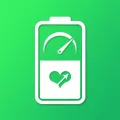
Understanding Battery Power Usage Monitoring
Battery power usage monitoring has become a fundamental aspect of modern technology management, driven by the ubiquitous nature of mobile devices and the demand for sustainable energy consumption. At its core, battery power usage monitoring entails the observation and regulation of the energy consumed by a battery, particularly in portable computing devices such as smartphones, tablets, and laptops. The sophisticated process of tracking battery usage involves complex algorithms and sensors that record metrics like charging currents, energy consumption rates, temperature variations, and discharge times. These variables are crucial, as they directly impact the longevity and efficiency of a battery. The elaborate architecture of a power usage monitor encompasses hardware and software components; the hardware consists of sensors and electronic circuitry designed to assess battery parameters, while the software includes algorithms and applications that interpret data and provide users with visual representations of battery health and usage trends. An example of such a detailed monitoring tool is the Charge Meter app for Android devices, which not only measures charging currents in milliampere (mA) but also evaluates real battery capacity by assessing the milliamp-hour (mAh) ratings. This dual functionality empowers users to make informed decisions about energy use, from choosing the most efficient chargers to understanding the battery consumption patterns of individual applications. Given the critical role of such applications in managing energy dependency, it's clear that a deeper technical understanding of these components and their operation is beneficial for end-users and developers alike.
The Role of Battery Management Systems
Battery Management Systems (BMS) serve as the nucleus of effective battery power usage monitoring. This intricate ensemble of electronic components significantly influences how batteries are utilized, maintained, and preserved. A BMS supervises and controls critical battery parameters including voltage, temperature, state of charge (SOC), and state of health (SOH). These systems are particularly vital in high-capacity battery bundles where imbalance in cells can lead to inefficient power delivery, reduced lifespan, or even safety hazards. Advanced BMS models incorporate sophisticated algorithms that predict battery performance based on historical usage data and real-time analysis. The accuracy of these predictions often hinges on the quality of data collected, necessitating precise sensor calibration and robust data acquisition procedures. For instance, in smartphones, the BMS calculates the charging speed under various conditions by considering factors such as charger type, cable quality, and ambient temperature. The Charge Meter app demonstrates BMS principles in action by providing real-time metrics for charging speed and battery health conditions, which could adjust as background tasks fluctuate, or as states such as WiFi or GPS usage change. Moreover, such systems are engineered to extend battery life through smart charging techniques that reduce the charging current as a battery nears full capacity, a critical functionality engineered to mitigate the stress on lithium-ion cells and prevent overcharging.
Applications of Battery Usage Data
In the context of energy-smart technology, the application of battery usage data has profound implications for both personal device users and large-scale industrial applications. From a consumer standpoint, understanding how power is consumed by devices can lead to more judicious usage habits. Apps like Charge Meter not only educate consumers by displaying detailed energy consumption statistics for different applications, but also empower them with tools such as widgets for homescreens, which give instantaneous feedback on power usage without the need to actively log into an app. The data harvested from these apps can influence user behavior, encouraging modifications in app use, brightness settings, or the switching off of unnecessary services to conserve battery life—an example of smart control over energy usage. At an industrial level, this data becomes invaluable for engineers and designers tasked with optimizing the energy efficiency of devices. They utilize detailed power consumption statistics in developing new technologies that promise more efficient battery usage, leading to innovation in power-saving algorithms and components. Furthermore, this information can drive policies and technologies aimed at ecological sustainability, as detailed monitoring enables more effective recycling and disposal processes due to clearer insights into the longevity and life cycles of batteries in modern electronics.
Effects of Battery Health on Device Performance
The health of a battery directly correlates with the overall performance of a device, impacting everything from application responsiveness to the accuracy of time-keeping elements within a device's software framework. As batteries age, their capacity to hold charge diminishes, leading to decreased device uptime and potential interruptions in connectivity. This deterioration is often exacerbated by suboptimal charging habits or exposure to extreme environmental conditions. Comprehensive power usage monitors can assist in mitigating these effects by providing data-driven suggestions for maintaining battery health. For example, the Charge Meter app's feature to track live charge usage of apps offers direct insight into which applications might be unnecessarily taxing on the battery. Such monitoring is especially crucial as it allows for better task management and application optimization, ensuring that essential functions and core apps are prioritized for power allocation. This strategic management not only preserves battery life but also ensures that devices perform reliably across their expected lifespan. Regular assessments of battery health conditions provided by such apps offer a proactive approach to device management, allowing users to replace batteries or adopt improved charging practices before severe degradation impacts device usability.
Future Trends in Battery Management Technology
The future of battery management technology lies in the advancement of smart systems that better integrate with the Internet of Things (IoT) and leverage machine learning for predictive analytics. As electronic devices become more interconnected, there is growing interest in developing unified platforms that allow for seamless battery management across multiple devices. This shift could lead to significant energy savings and enhanced convenience, as users might manage their power usage remotely or automatically switch between power sources to extend battery life. Emerging technologies in AI and machine learning are set to revolutionize this field by allowing apps to learn the user’s behaviors and optimize energy use dynamically. For example, adapting device performance based on anticipated user needs could greatly prolong battery life and improve overall device efficiency. Such innovations will likely drive the development of new standards and protocols in power usage monitoring and play a crucial role in the global push toward sustainable technology solutions. The promise of these future developments can already be glimpsed in applications such as the Charge Meter app, which offers premium features like dark mode and picture-in-picture viewing, enhancing user experience while reducing screen power consumption. Ensuring that battery technologies evolve alongside advancements in computing and telecommunications is critical in meeting the growing demand for energy-efficient solutions that minimize ecological footprints.
For those interested in exploring these features, the Charge Meter application is available for download on Android devices. You can Download for Android to measure charging speeds and monitor your battery’s health effectively. Always ensure your charging accessories and habits align with best practices to optimize battery longevity and overall device performance.
Share Your Opinion
Your Email Will Not Be Published.
All Rights Reserved © Apps Home 2025
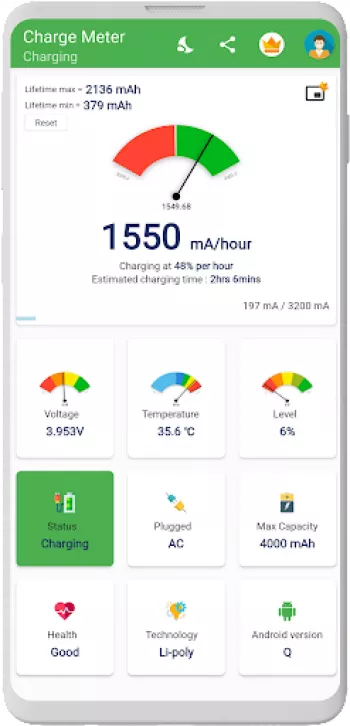
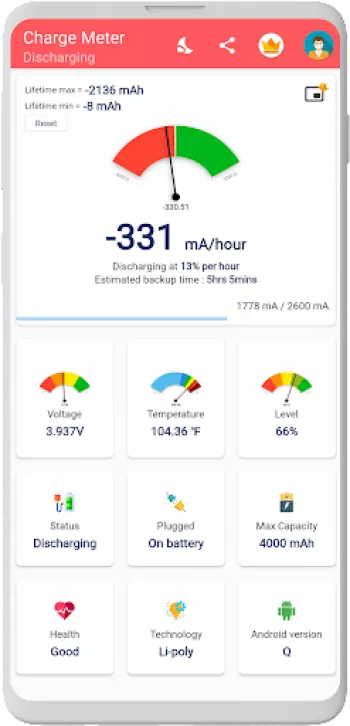
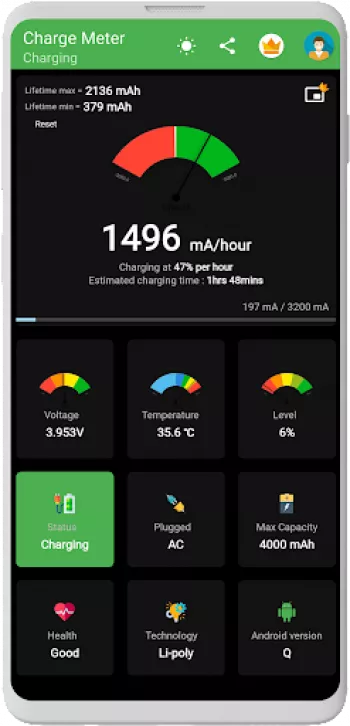
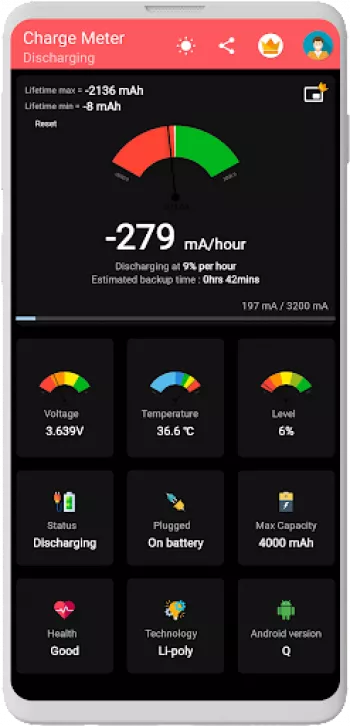
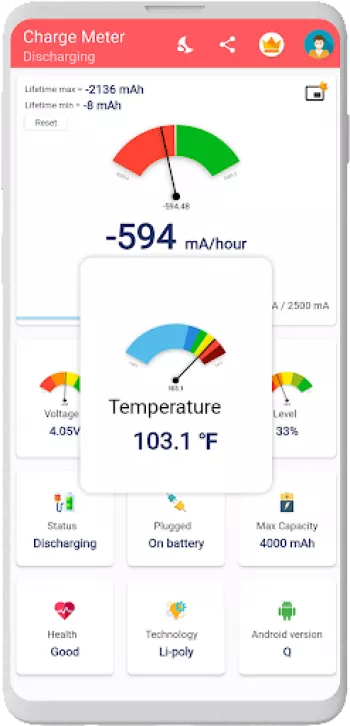
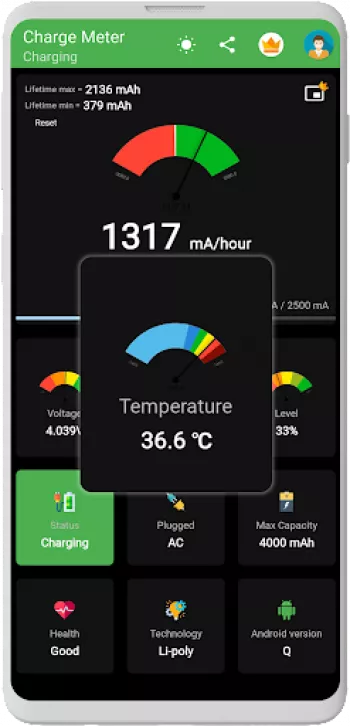
























Jenny Gao
I had problems with a usb charger when travelling. Instead of charging, it drained the battery from the phone. I was searching for a tool to find o...
Joseph Pruitt
Edit: Feature request: Graph view. I'm on a knockoff phone. Not sure if that has anything to do with it but the charge rate is flopping all over th...
Daryl Wilson
I like it. Two things that I wish were incorporated: A selection of home screen widgets for quick battery monitoring gat a glance and the option to...
Princeton Gary
This is the best app for measuring the performance of which adapter, outlet or method is the best for your device and it's accurate! It shows you r...
Martin
I really like the app, especially that it shows the mA the phone is currently charging at. The App also sends me a warning when my charge has reach...